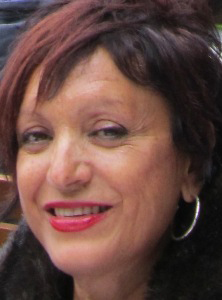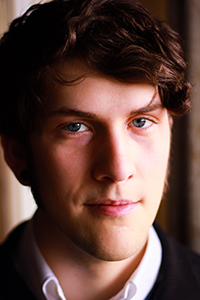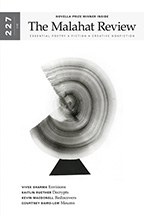On the Writing Path: Eliot Gilbert in Conversation with Carmelinda Scian

Malahat volunteer Eliot Gilbert talks with Open Season Awards fiction judge Carmelinda Scian about the art of the short story, how academia can shape your writing, and the writer's responsibility to address global and social issues.
Carmelinda Scian emigrated from Portugal in 1970 with her parents. While working, she obtained a BA and an English MA from the University of Toronto. She began pursuing creative writing in 2012 through the University of Toronto’s School of Continuing Studies, and obtained a certificate. Her story “Yellow-Watch” was longlisted for the Fiddlehead's Short Story Contest, published in their 2017 fall issue, and has subsequently been nominated for the 2018 Journey Prize. Read more here.
Click here for details on entering the Open Season Awards contest.
You recently attended the 15th International Conference on the Short Story in English, in Lisbon. Can you speak about your experience there?
"I would really hope that this would make people see the short story as an important art, not just something you played around with until you got a novel." — Alice Munro, Nobel Prize for Literature 2013 acceptance
Epigrapgh on the website of the 15th international convention on the short story, titled Beyond History: the Radiance of the Short Story
As a writer and lover of the short story form it was validating, inspiring, and rewarding to be part of such an international gathering of over one hundred authors and two hundred scholars. The latter delved and elevated the short story as a unique and relevant art form, as the quotation above by Alice Munro exemplifies, offering the reader a very different experience from the novel. As readers and writers of the short story know, every word in short fiction must be an integral aspect of the overall effect. In our digital sped-up age where time is a luxury, the short story is again leaping into popularity, as it did at its flourishing in magazines, especially in the United States, in the latter part of the nineteenth century. We are seeing the proliferation of literary journals (such as the Malahat), online journals, and contests where the short story is prominent.
It was thrilling to hear our beloved Alice Munro being read and studied in such diverse countries as Norway, Italy, China, and more.
The conference was also a way of mingling and meeting with other authors, some new like myself, others well established and anthologized, such as my mentor, Mark Anthony Jarman (Can), Clark Blaise (Can), Robert Olen Butler (US), and Jayne Anne Phillips (US) to name a few. To have read in my panel with Helia Correia, a prolific and esteemed Portuguese author, and Katherine Vaz, an award winning Portuguese American writer, was a humbling and enriching experience.
The Lisbon Conference was also a way of meeting publishers and scholars, developing relationships and sharing experiences and ideas. I would highly advise anyone who is serious about their craft to participate in as many literary events as possible.
You have an MA in English from the University of Toronto. How has your academic background shaped your own writing? How has it influenced your taste in literature?
I have been an avid reader from the moment I learned to read, devouring books into the night as a child when my mother thought me asleep. But to your question: it was the immense exposure to international and Canadian literature, to the various genres, writing styles, the probing into what makes a story, a book compelling, that made me truly appreciate literature. In other words, I learned about the techniques/tools a writer uses in order to make a character resonate with the reader, a setting become unforgettable, a word on the page create universes of meaning. Reading such giants as Melville, Faulkner, Joyce, Hemingway, James, Woolf, Eliot, Flannery O’Connor, for instance, introduced me to the allure and transformation of stepping into other worlds and the importance of time and place in the shaping of character. Key features, I would argue, for the writing of any good story. But it was the post-graduate course focusing on Alice Munro and Mavis Gallant and their detailed exploration of female characters and how “Canadianness” propels the characters’ motivations — whether they inhabit rural Ontario (Munro), or English Montreal and abroad (Gallant) — that planted the seed for my own creation of a Portuguese/Canadian world and cemented my preference of short-story forms.
As I understand it, you care deeply about climate change, poverty, and social justice. Is it a writer's responsibility to write about global issues? How do you recommend one writes meaningfully about these things?
I will try to answer each part of the question separately, though each part is indivisible from the other. I believe that in 2018, climate change posits the biggest threat to humanity and all life forms on earth. Not to rehash what scientists are telling us and your readers already know, but with icebergs melting, fires out of control everywhere this summer, including Ontario, droughts turning soils into deserts, especially in Sub-Sahara Africa and India, shortage of potable water, and floods, our existence is in peril. This, of course, leads to terrible poverty and mass migrations of people, and wars, which we are already seeing. Yet, our leaders are mostly concerned with macro-economics and ways to win the next election.
I was a young child in the brutal dictatorship of Salazar’s Portugal. Though we owned our own home and never went hungry, I witnessed the pernicious effects of poverty all around me, how it hollows out the faces and the souls of those caught in its traps. It was a relief and cause for great hope not to see homelessness and begging on the streets of Toronto in the early 70’s — governments in Canada looked after their citizens, or at least, it appeared so. One cannot walk four blocks in Toronto today without passing four or five homeless individuals, hands stretching out, rendering the rhetoric of politicians of all stripes, and their promises to eradicate poverty, into mush.
As I said earlier, it’s difficult to separate issues of social justice from poverty and climate change, as the three are couched in the lameness of our governments and societies to act efficiently, to protect each and every citizen, though some governments are better than others. I will just say this, that as sentient beings, I don’t believe we can be truly free, truly at peace with ourselves while others in the world are discriminated against, oppressed, imprisoned, tortured, and killed while our governments turn the other cheek or spew the empty rhetoric of human rights and democratic values in photo ops.
Now, to the last part of your question: yes, I strongly believe that writers have a responsibility to write about global and social issues. How can writers be anything but political in the etymological sense of the word? Clearly the writer cannot address all the problems in the world. It’s not even up to the writer to offer political or economic solutions — that should be left to experts in the fields. I believe that the writer’s (all artists, for that matter) role is to observe and expose the world around him or her, to tell the truth of what he or she knows. At this time of mass information, where we are inundated 24/7 with horrible images and headlines and are forced to close our eyes in order to get through the day, I’m convinced that the role of the writer (artist) is more relevant than ever before. By portraying the predicament of the human experience through their characters, in other words, by showing the suffering of the micro — the individual — it is my belief that the message of urgency for political and social change will better reach the macro — the whole of society and thus affect change.
I am amazed that you were able to operate a business as well as do an Honours BA and an MA, from a notoriously demanding school. I feel like you must have great discipline, seeing as you still find time to write, publish, and win contests, despite your demanding schedule as an entrepreneur. What advice do you have for would-be successful writers?
Funny enough, I don’t consider myself a very disciplined person. Dinner in my house is anywhere from 5pm to midnight. If I have to describe my experience in a few words I would say, love of the craft, as it were, and prioritization. On the days I don’t work, I wake early and write for four or five hours without interruption, everything else is secondary. I’ve always been able to compartmentalize activities. At work I don’t think of my writing; at home I don’t think of my work. I don’t watch TV or talk much on the telephone.
My recommendation for would-be successful “working” writers: establish rules in your household so that your partner or family know that you are serious about being left alone during “writing time.” Also, choose your friends carefully. Don’t waste “precious” writing time with people you don’t love.
As a judge, what qualities are you looking for in a winning short story?
I look for a story that engages from the opening sentence, that piques my curiosity by taking me into new worlds or new ways of seeing and understanding the familiar. The story may surprise, delight, shock, sadden, titillate, or provoke but it must resonate with my own frail humanity. It should remain with me long after the last line is read and lead me to want to read more from that author. I have no preference for particular topics or styles — the story can be about leaves of grass or a snail — as long as the writing is well crafted. Cleverness is superfluous if it doesn’t contribute to the order of the whole.
Do you have anything more to say about writing contests, writing, the writing life, publishing, etc.?
I highly urge all serious up-and-coming writers to enter writing contests. It can become a bit expensive after a while but it is a way to hone skills and validate your work. For me, winning the Malahat’s Open Season Award for fiction in 2013 affirmed that what I was writing had merit, that the new path I’d chosen was right for me. I also recommend joining a group of writers who are at your level and whose opinions you trust so that new eyes can evaluate the story you are so immersed in you can no longer “see” it. Group workshopping is not for everyone, of course. It may be devastating for those who are super sensitive. For me, the group interaction has been valuable in the development of my own writing endeavour, providing me with insights and support. As you all know, writing can be a lonely and frustrating occupation and, yet, most fulfilling and rewarding in the end.
Rule number one before embarking on the writing path: hang your ego in the closet, lock the door, and throw away the key.
I am presently in the process of finding a Canadian publisher for my first collection of related short stories, set in both Portugal and Canada.

Eliot Gilbert
* * * * * * * *









